It’s book review day here on the blog, and I’m excited to share this month’s roundup that features mystery, suspense, found family, romance, memoir, literary analysis, and more. Let’s get to the reviews!
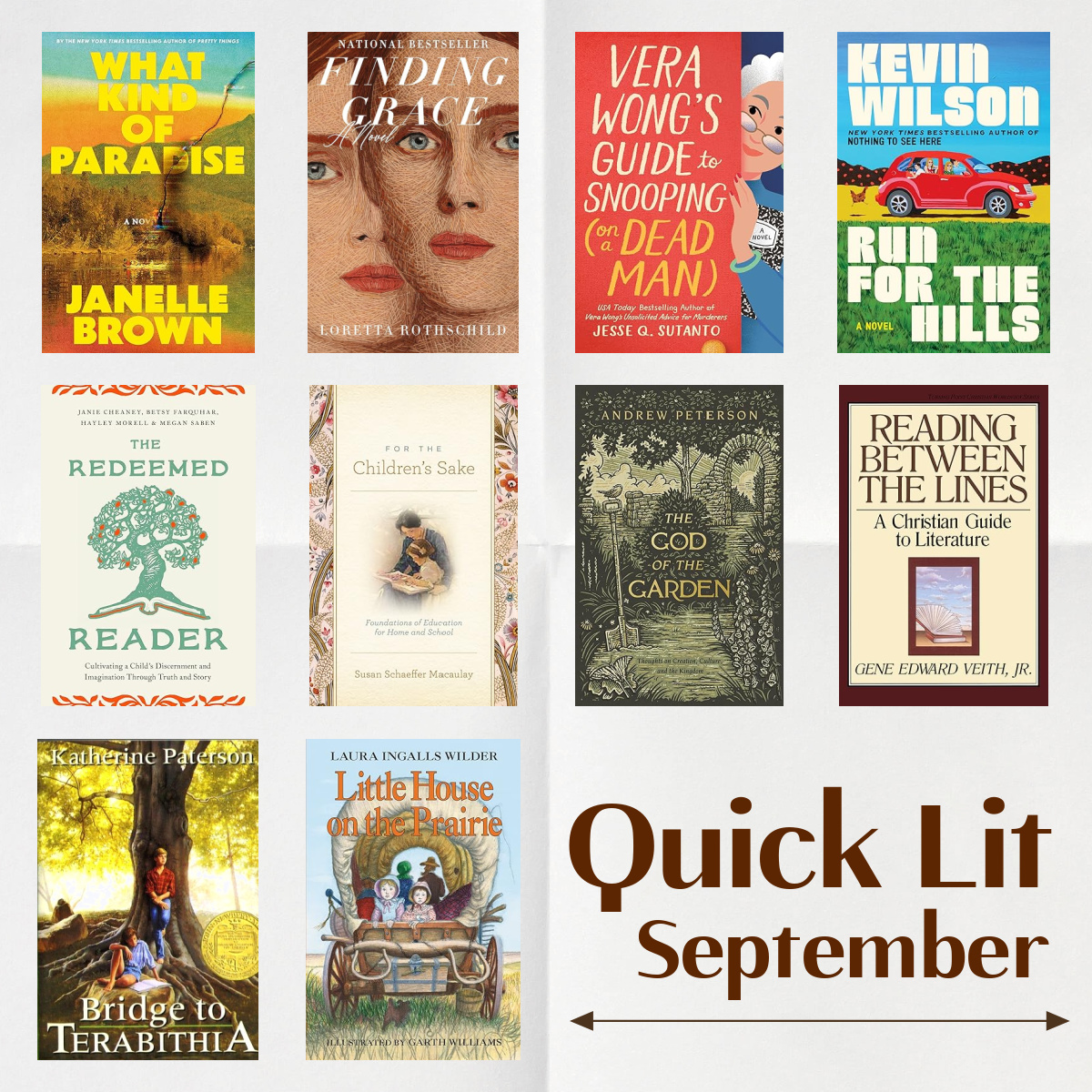
FICTION
What Kind of Paradise, by Janelle Brown—Jane’s life is not like that of other teens in the mid-90s: growing up in an isolated cabin in Montana with only her father for company, she spends her days studying nineteenth-century philosophy, tending to their vegetable garden, and engaging in practice drills in preparation for an invasion from “the Feds” (an event that her father says is inevitable). Jane worships her father, but wishes he would share more details about their past: all Jane knows about their pre-Montana life in the Bay Area is that their time there came to an end after a car accident left Jane motherless at the age of four.
Jane’s world is rocked one day when her father returns from a long trip with a computer, giving Jane her first real access to life beyond their reclusive bubble. The internet is in its earliest stages, but a few forays into search engines and chatrooms is enough to expose Jane to ideologies beyond those her father has taught her (most of which were part of the Luddite manifesto he had Jane upload to a homemade website). This taste of freedom prompts Jane to accompany her father on a trip away from the cabin, where she finds herself an unwitting accomplice to a horrific crime. Soon Jane is fending for herself on the streets of San Francisco, seeking answers to her past while trying to make sense of this new life she has discovered.
This brilliant novel is not at all what I expected based on the historical “thriller” classification (it does have a few twists and lots of suspense, but it’s definitely a slow burn). It is mysterious, voicey, atmospheric, and propulsive, but it is more than an assemblage of memorable characters and riveting plot: it is also a provocative exploration of identity and family and loyalty; technology and the rise of AI; the clash of past and future ideologies; survivalism and doomsday fears; and the many grey areas around parenting (protecting vs suffocating children) and mental illness (that can masquerade as brilliance) and government (savior or villain?). The ideas are challenging, and Brown does an excellent job of garnering sympathy for characters and worldviews that are ostensibly off-putting but also deserve our thoughtful consideration.
The book has an incredible sense of time and place, and I was fascinated by both main settings—the Montana wilderness AND San Francisco in the fledgling days of the internet. I was a child in the 90s, which doesn’t seem that long ago; this book reminded me of how much has changed in such a short time frame, and it prompted some deep thought about whether or not these changes are beneficial to our society and whether knowledge of what was to come could have (or should have) elicited different decisions from those at the forefront of the technology boom. Though set in the past, this one felt incredibly timely. What a highly discussable book, and a memorable one.
My Rating: 5 Stars // Book Format: Kindle
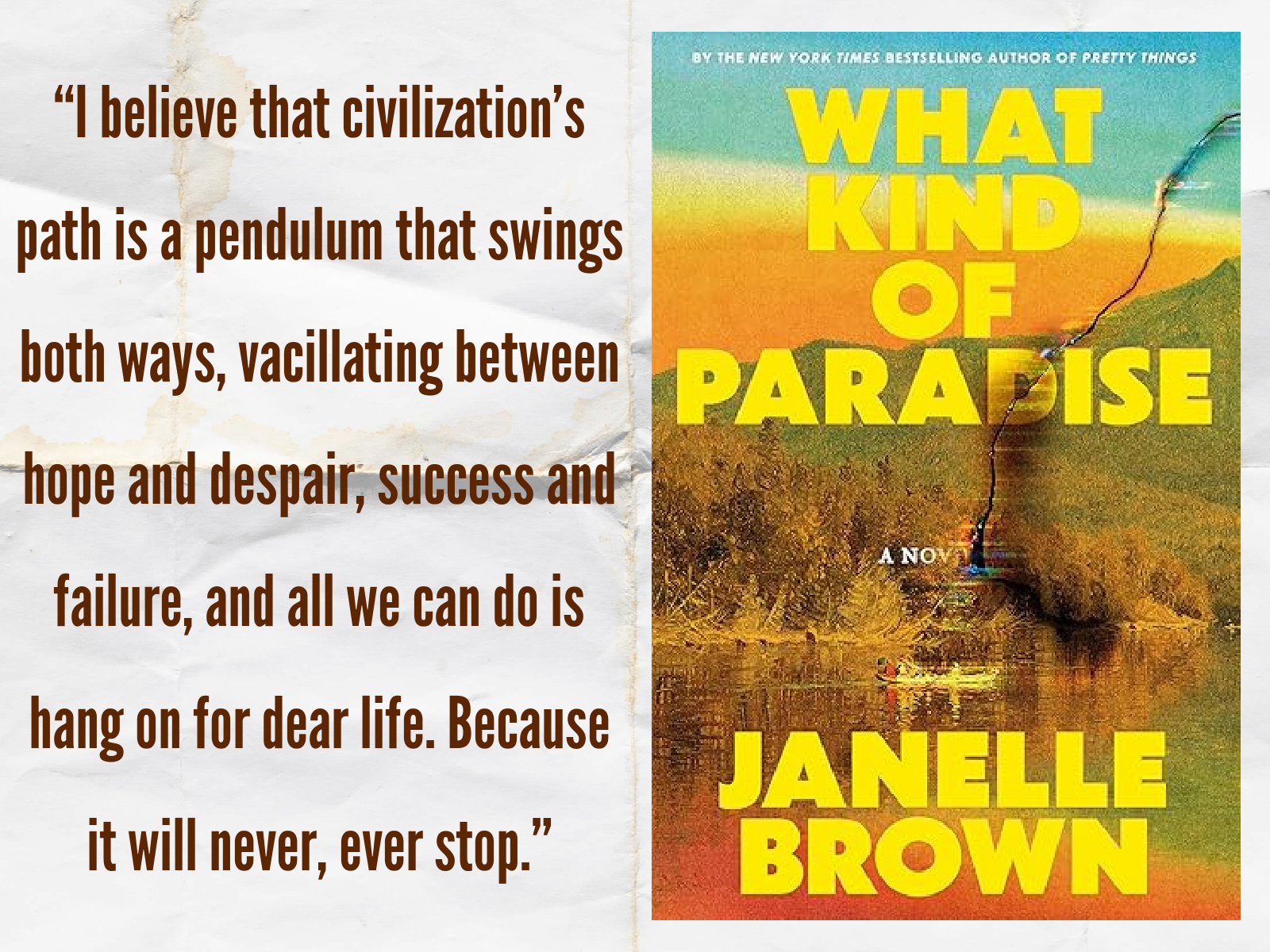
Finding Grace, by Loretta Rothschild—Honor should be enjoying her “perfect-on-paper” life: a successful career as a children’s author; a husband who is the envy of all the nursery school moms; an adorable daughter. . . . Instead, her days are dominated by her preoccupation with having another child, which she is determined to make happen at any cost. Then, while vacationing in France on Christmas, Honor becomes victim to a catastrophic event that forever alters the trajectory of their family.
Five years later, Honor’s husband Tom is still dealing with the ramifications of that fateful day when he once again finds himself the victim of fate. But this time, he gets to play a part in his own outcomes. Tom’s decisions bring about the collision of past and present as he attempts to make peace with the realities of his family while holding out hope for a second chance at love.
All of the reviews say to enter this one blind and I did just that; I was rewarded with one of the most shocking twists I have EVER read. And that twist comes within the first few pages of the book, which makes this extremely difficult to review without spoiling. I did enjoy the twist, but going in blind also meant that I had no idea what I was getting into with this book that is not at all what it seems at first glance. If you’d prefer to have a little more info before reading, stick with me for the next paragraph, but IF YOU WANT TO AVOID SPOILERS, SKIP AHEAD TWO PARAGRAPHS!
THIS PARAGRAPH CONTAINS SPOILERS! << While this book is told from Honor’s perspective, she and her daughter are actually the victims of a suicide bomber at the end of the very first chapter, and Honor is narrating the novel from the grave (a narration choice with no explanation and zero sensible boundaries, much to my frustration). The remainder of the book is about Tom accidentally learning the identity of the egg donor for Henry, the surrogate child born after Honor’s death. Tom immediately falls in love this woman, whose name is Grace, and chooses to pursue her (in a romance narrated by Tom’s dead wife, which got quite weird given the steaminess). Yet Tom never discloses to Grace the true nature of their connection, giving her no indication that his son Henry shares Grace’s DNA. >> SPOILER CONTENT ENDS HERE!
Though this book was not what I had anticipated, I found it intriguing and highly readable. The romantic storyline is unique and timely, and the book explores complex and discussable themes of surrogacy, grief, infidelity, second chances, moral ambiguities, friends who are like family, parenting, and family identity. This is a surprise love story but there are thriller aspects as well that definitely kept me on my toes.
That said, there was a lot about the novel that was hard for me to get behind, most notably the odd narration choice (read the spoiler chapter to see why I found this a little creepy), the excessive steaminess, and the inordinate number of story coincidences. I also struggled to fully understand what type of book I was reading, due to the odd mashup of literary tone/writing style with a melodramatic storyline that was much more “soap opera” than “serious fiction.” Rounding out my list of qualms is the cast of deeply unlikeable characters engaging in my least favorite of all literary tropes—dishonesty and miscommunication.
I can understand the buzz around this one, and I did find it both propulsive and memorable. Plus I’m a sucker for a good ending, and this book has a perfect one. Ultimately, though, the dislikes outweighed the things I enjoyed about this, averaging out to a just-mediocre read.
My Rating: 3 Stars // Book Format: Kindle
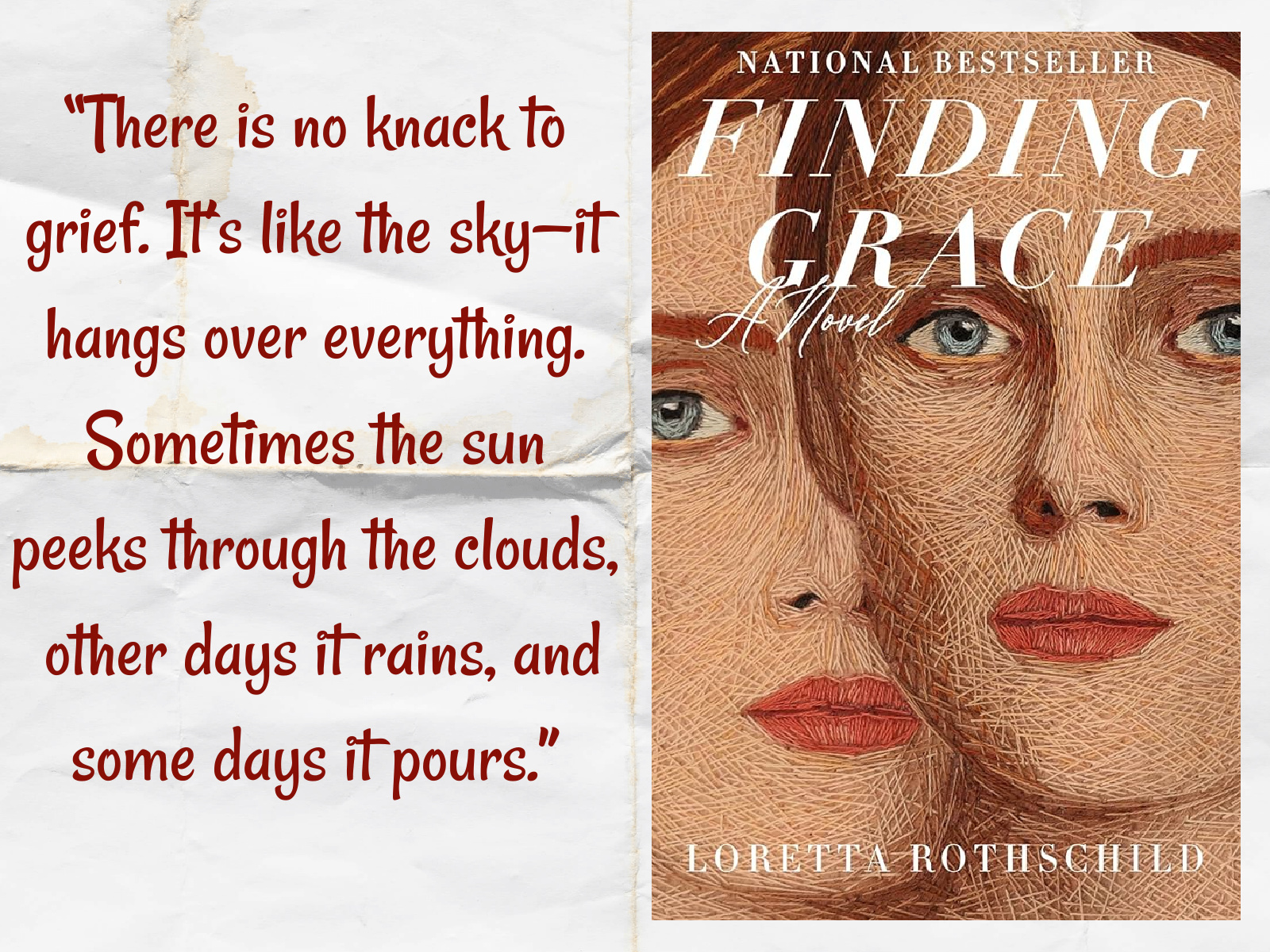
Vera Wong’s Guide to Snooping (on a Dead Man), by Jesse Q. Sutanto—It’s been a minute since Vera Wong had the “good fortune” of finding a dead body in her world famous teahouse. Since then, everything about her life has improved, now that her world is filled with plenty of young friends who adore Vera’s home cooked meals and appreciate her unique brand of intense Chinese mothering. But Vera is eager to put her sleuthing skills back to work, and she’s given a chance to do just that when she comes across a distressed young woman looking for a missing friend. Thanks to some snooping through files belonging to her detective daughter-in-law, Vera pieces together that the missing friend is actually a famous influencer named Xander Lin who was recently found dead. The case has police stumped, but Vera is up for the challenge: who was Xander really? What is the truth behind the viral online content that was his facade? And what was his body doing in Mission Bay?
The first Vera Wong book was one of my favorite reads of 2024, and while this one is a little formulaic and not quite the standout that the original is, I really enjoyed this. Vera is such a delightful character: totally over the top while still believable for anyone who knows an overbearing-but-well-meaning Asian mother. The side characters are also endearing and come together for those found-family moments I just love to read about. One frustration, though, was the high number of characters to keep track of; many were from the first Vera book and we weren’t given enough specifics about them to jog my memories from the previous reading. In the end that didn’t matter to the story, but it did stall my reading somewhat.
The book tackles some harder topics including the dark side of influencer culture and even human trafficking, but Sutanto does a good job of incorporating these into the story without turning this into an “issues” book. Of course these harder points are softened by the book’s quirky (sometimes outlandish) humor as well as Vera’s no-nonsense approach to both truth and kindness. What a great follow-up read, and I look forward to continuing this series!
My Rating: 4 Stars // Book Format: Kindle
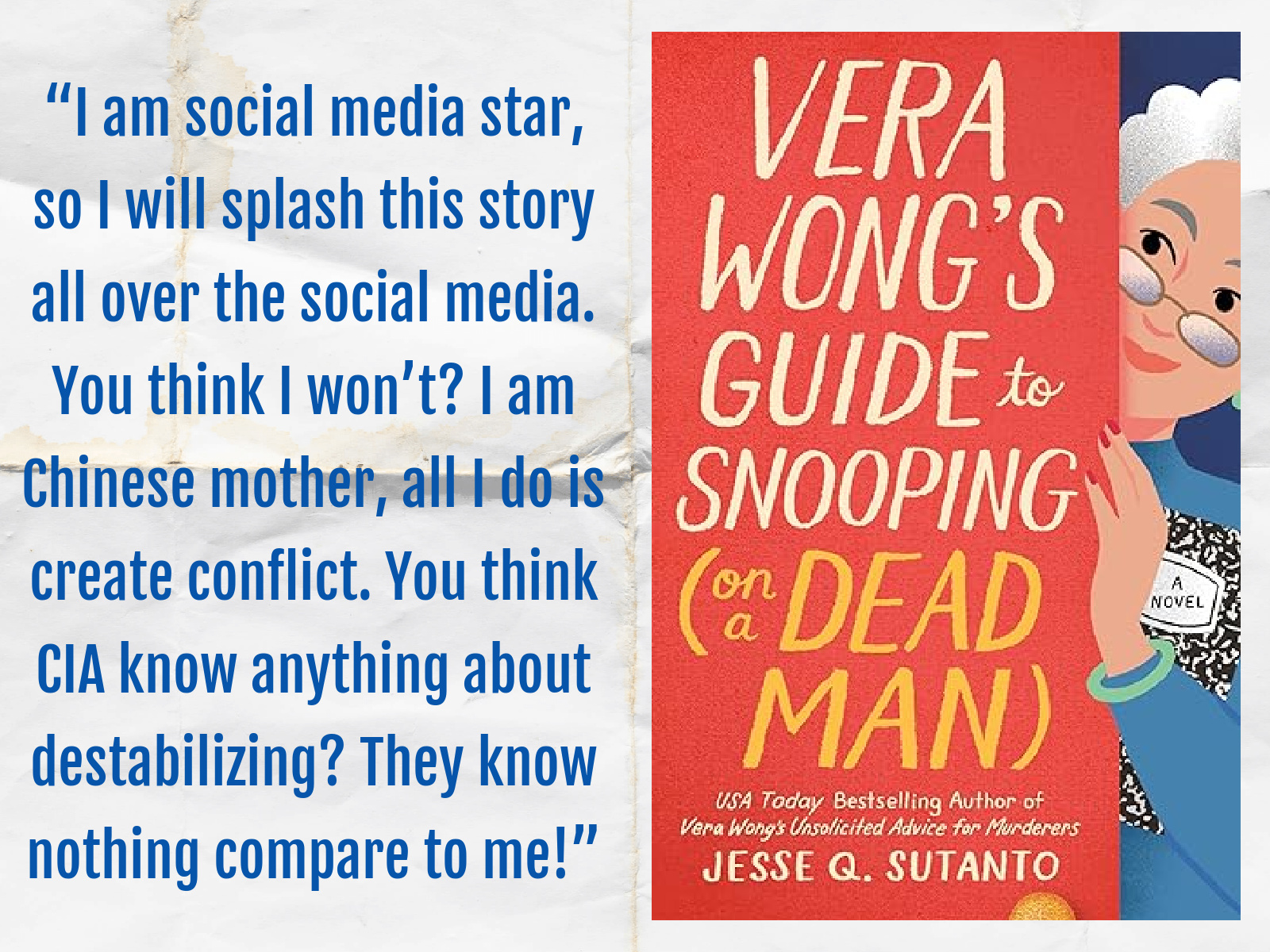
Run for the Hills, by Kevin Wilson—Madeline (“Mad”) Hill is a lonely(ish) woman in her early thirties living in Coalfield, Tennessee, where she and her mom manage a small but successful farm. Mad rarely thinks about the father who abandoned them twenty years ago, until one day when a forty-something man named Reuben (“Rube”) shows up at the farm in a PT Cruiser, informing her that he’s her half-brother and was ALSO abandoned by their mutual father, before Mad was born. What’s more, he tells her, their dad went on to have at least two more families after them, taking on a new profession and name with each new life.
Mad and Rube set off on a cross-country road trip to meet their other half-siblings and track down the father that, it turns out, none of them truly knew. They have plenty of questions: why did he leave? Why did he continually reimagine himself? Who are these abandoned children to him, and to them, and what will their mismatched family look like moving forward?
This book bears an uncanny resemblance to The Road to Tender Hearts, which also released this summer. Both are road trip stories with quirky narration and an eclectic assortment of distantly related individuals who have joined together on a (possibly harebrained) search for a long-lost loved one. My great enthusiasm for The Road to Tender Hearts made it hard to appreciate this read-alike as much as I might have if it hadn’t been a follow-up to such an outstanding book, but I did enjoy it for the interesting characters, unique premise, heartwarming found-family trope, and thoughtful exploration of identity, loss, and belonging. I was disappointed by the anticlimactic ending, and felt the author could have done quite a bit more with this story that felt a little unfinished, but this was still an enjoyable read with a lot to recommend it.
My Rating: 4 Stars (probably more like 3.75 stars if I was still using a quarter-star rating) // Book Format: Kindle
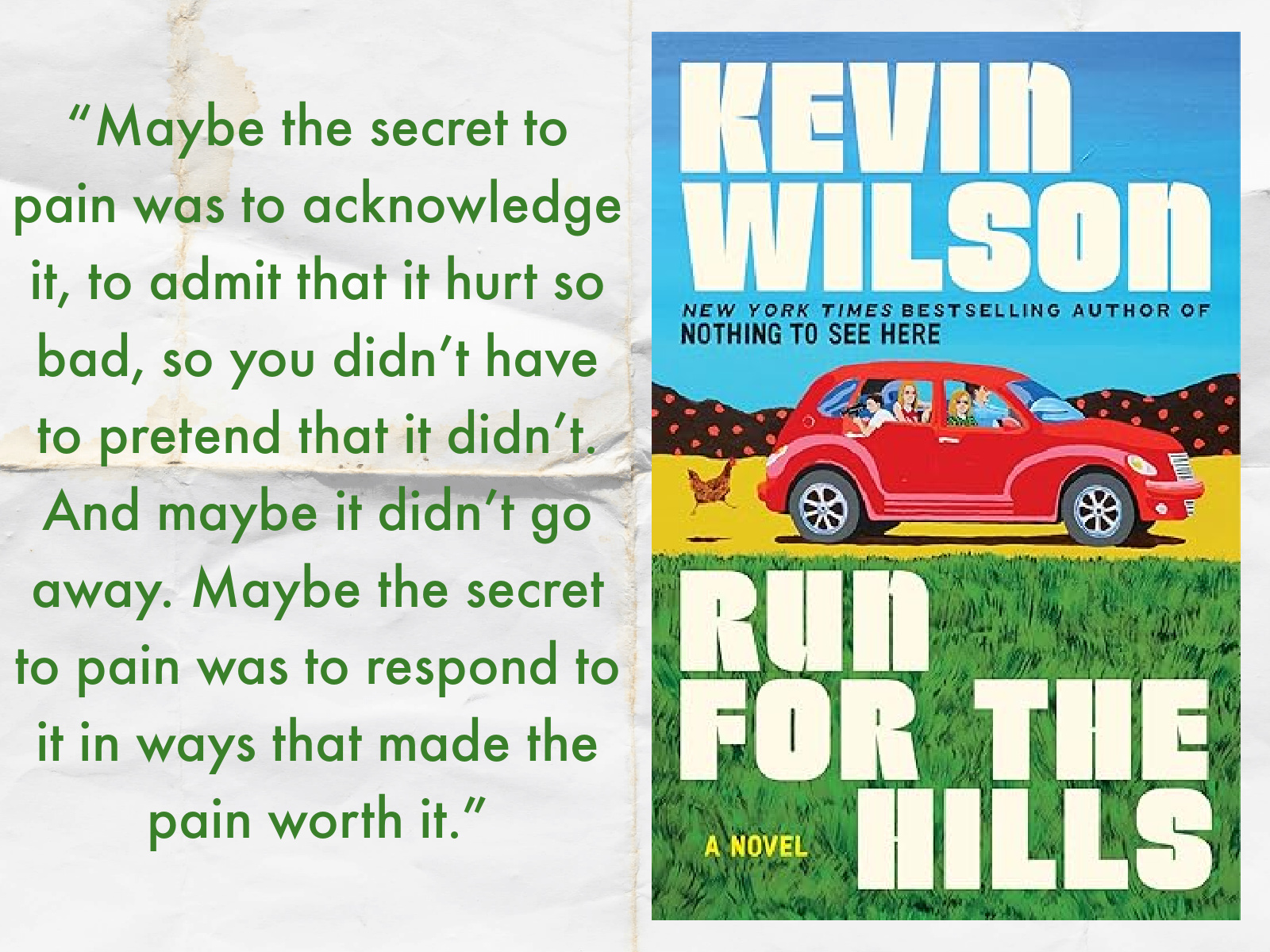
MIDDLE GRADE
These next two reviews were written mostly by Charleston, with slight guidance from me and contributions from Kali and Sully.
The Bridge to Terabithia, by Katherine Paterson—All summer, Jesse practices. He runs, and he runs, and he doesn’t stop running. He’ll be the fastest runner at school when the recess bell rings on the first day of the year. Except . . . there’s a new kid in town. She’s annoying, she’s weird, she’s fast, and she’s Leslie Burke, the best friend Jesse Aarons could ever imagine.
Together, Leslie and Jesse discover the perfect place in the woods, a spot they can swing into by rope, not too deep in or far out. Here, in their secret meeting place, they can fight and guard the imaginary subjects as the reigning King and Queen of Terabithia. Finally, Jesse Aarons has his rightful place in the world. He’s no longer just a weird kid who likes to draw. But too soon, Leslie leaves. She’s gone and Jesse must decide how to move on with his life. Will he forget his friend, carrying on like she never existed? Maybe he’ll make a Terabithian mourning ceremony. But whatever he does, he’ll never be the same.
Kali’s favorite parts of this book were the castle of Terabithia and the character of Leslie. Sully liked that Leslie and Jesse were great at using their imaginations when they had time to play alone. Mom liked the realistic setting, characters, and themes; Jesse is a believable character that she feels many readers will relate to. She also found this to be a lovely and age-appropriate exploration of grief. Charleston liked seeing Jess find his place in the world, but he didn’t like how the book introduced the topic of faith and God without resolving the conversations and ideas. But he loved the relationship between Jesse and Leslie that shows what true friends are like: a perfect example of friendship. He was okay with the harder parts of the story and liked how the book modeled healthy ways to handle the sad parts of life.
KENDRA NOTE: While I’d read this before (as an adult, with a tutoring group of Middle School students), I didn’t remember the specifics and I was struck by how crass this is. Jesse uses the Lord’s name in vain throughout the book. I edited as I read aloud, but did not like this as part of the book. There is a lot of bullying that isn’t entirely addressed (at least not appropriately), as well as some challenging faith conversations that introduce but don’t fully explore ideas about God in ways that made for good talking points but didn’t totally align with our family’s world view. Jess’s relationship with a teacher, though passed off as benign, is also pretty concerning. I appreciate this book as a study of friendship and of grief and loss, and it was a discussible read-aloud, especially with Charleston (most of the themes went over the twins’ heads). But the more problematic elements keep this from being one I’d pass off to a Middle Grader without guidance.
Charleston’s Rating: 4 Stars // Sullivan’s Rating: 3 Stars // Kalinda’s Rating: 5 Stars // Mom’s Rating: 3.5 Stars (Rounded to 3 Stars on Goodreads) // Book Format: Print
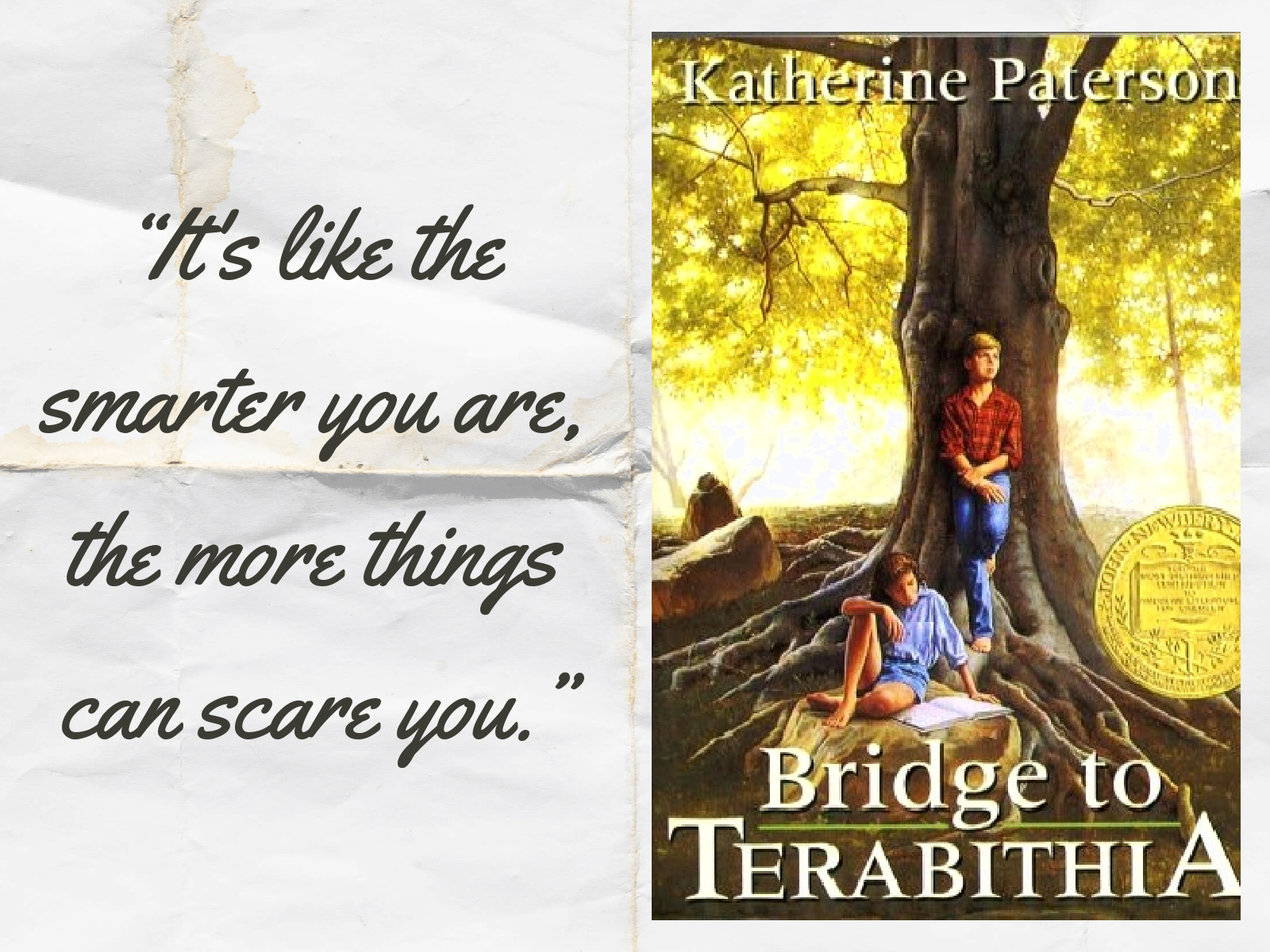
Little House on the Prairie, by Laura Ingalls Wilder—Little House on the Prairie is a book of sadness, mystery, and fun.
Imagine this: it’s the late 1870s and you’re living in a peaceful forest near all your friends and family. Soon you start to hear hammers and horses and fires crackling nearby. The forest is no longer so peaceful and you’re surrounded by neighbors. You decide to move away from everything you’ve ever known to the territories out west, where Indians roam. Before you know it, you’re in a small covered wagon riding away from everything you’ve ever loved with nothing but your two sisters, your parents, and your beloved dog Jack along for the ride.
This is how Mary, Laura, and the rest of the Ingalls family felt as they set out for adventure of unknowns to get away from the crowds of the Wisconsin forest. After a long journey across the plains (including crossing treacherous rivers and risking their lives) they finally arrive and build a little house on a prairie. Their new life is filled with adventure, hard work, fears of Indian massacre, and a couple of friendly neighbors. They soon find out that even on the prairie there are dangers lurking where you would least expect.
Charleston prefers books with a bigger storyline and faster pace but he still enjoyed parts of the book, like when the Ingalls realized there IS such a thing as a friendly Indian. Kalinda liked when the girls got candies and cups from Santa Claus that Mr. Edwards delivered at Christmas. Sullivan’s favorite part was when the girls found wild animals in the dirt. Both Kalinda and Sullivan really liked Baby Carrie. Mom loved seeing the courage and resilience of this family who was unafraid to chase after a big dream.
Families who have enjoyed Little Britches, Paddington, and similar gentle stories with warm family values and a big heart will want to read this. You will definitely benefit from reading Little House in the Big Woods first.
Kendra Note: This book does include unfortunate racial stereotypes related to the Ingalls’ attitudes about the Native Americans; this has led many families to skip this whole series and specifically this book. We chose instead to read the book and discuss the harmful prejudice, bringing a Biblical perspective to these controversial/problematic issues.
Charleston’s Rating: 4 Stars // Sullivan’s Rating: 4.5 Stars // Kalinda’s Rating: 5 Stars // Mom’s Rating: 5 Stars // Book Format: Print
NONFICTION
The Redeemed Reader: Cultivating a Child’s Discernment and Imagination Through Truth and Story, by Janie Cheaney, Betsy Farquhar, Hayley Morell, and Megan Saben—I shared a full review of this book two weeks ago. The book is now officially out in the world, and if you are a parent who wants to get the best books into your kids’ hands—and who wants to make the most of every reading opportunity with your children—it is absolutely a must read. I know I’ll be returning to the ideas of this one again and again.
My Rating: 5 Stars // Book Format: Kindle (Advanced Reader Copy)
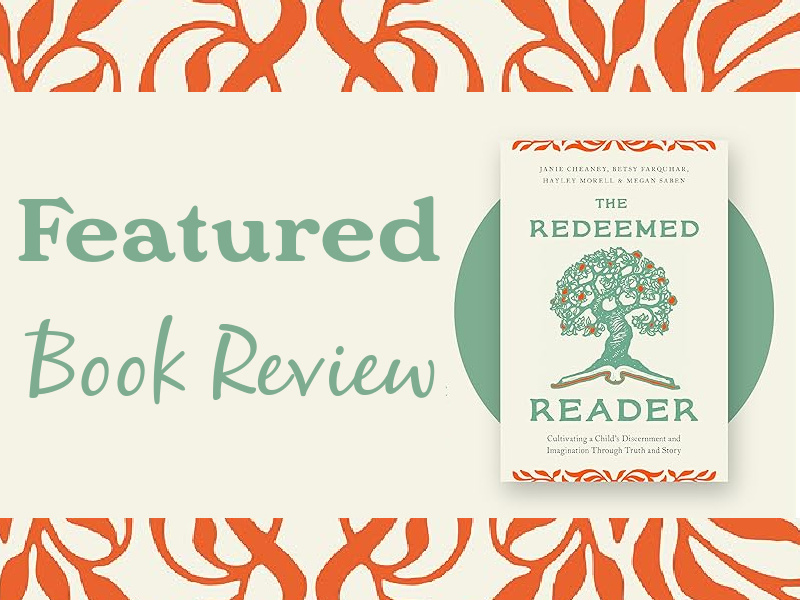
For the Children’s Sake: Foundations of Education for Home and School, by Susan Schaeffer Macauley—I’ve read quite a few books about children’s education this year, including a couple that have been on my “Homeschool Mom TBR” for as long as I’ve been homeschooling. This is the latest. For the Children’s Sake is a presentation of the educational philosophies of 19th century educator Charlotte Mason.
Charlotte Mason was a proponent of wholistic, natural learning built upon literature, art, nature, music and real-life experience in ways that build upon kids’ creativity, wonder, and natural gifting. Mason’s learning philosophies move beyond the cookie-cutter, utilitarian approach to education, bringing Christian principles into a joyful, life-enriching method of teaching that embraces the humanity and dignity of both pupil and teacher. In For the Children’s Sake, Susan Shaeffer Macauley provides homeschooling parents and other educators with a deeper understanding of these ideas as well as practical advice for implementing them in the home or school setting.
I really love the Charlotte Mason approach to learning and have always incorporated many of her ideas into our homeschool. While I feel that some of her ideas about children and education are idealized (or maybe just dated?), there is a lot to be said for her general principles that reflect the way children have been educated for most of history (very different from how most kids are educated today). And this book is a great introduction to Mason’s ideas (or review for those like me who were familiar with the Charlotte Mason’s principles but are always up for a refresher).
My Rating: 4 Stars // Book Format: Audiobook
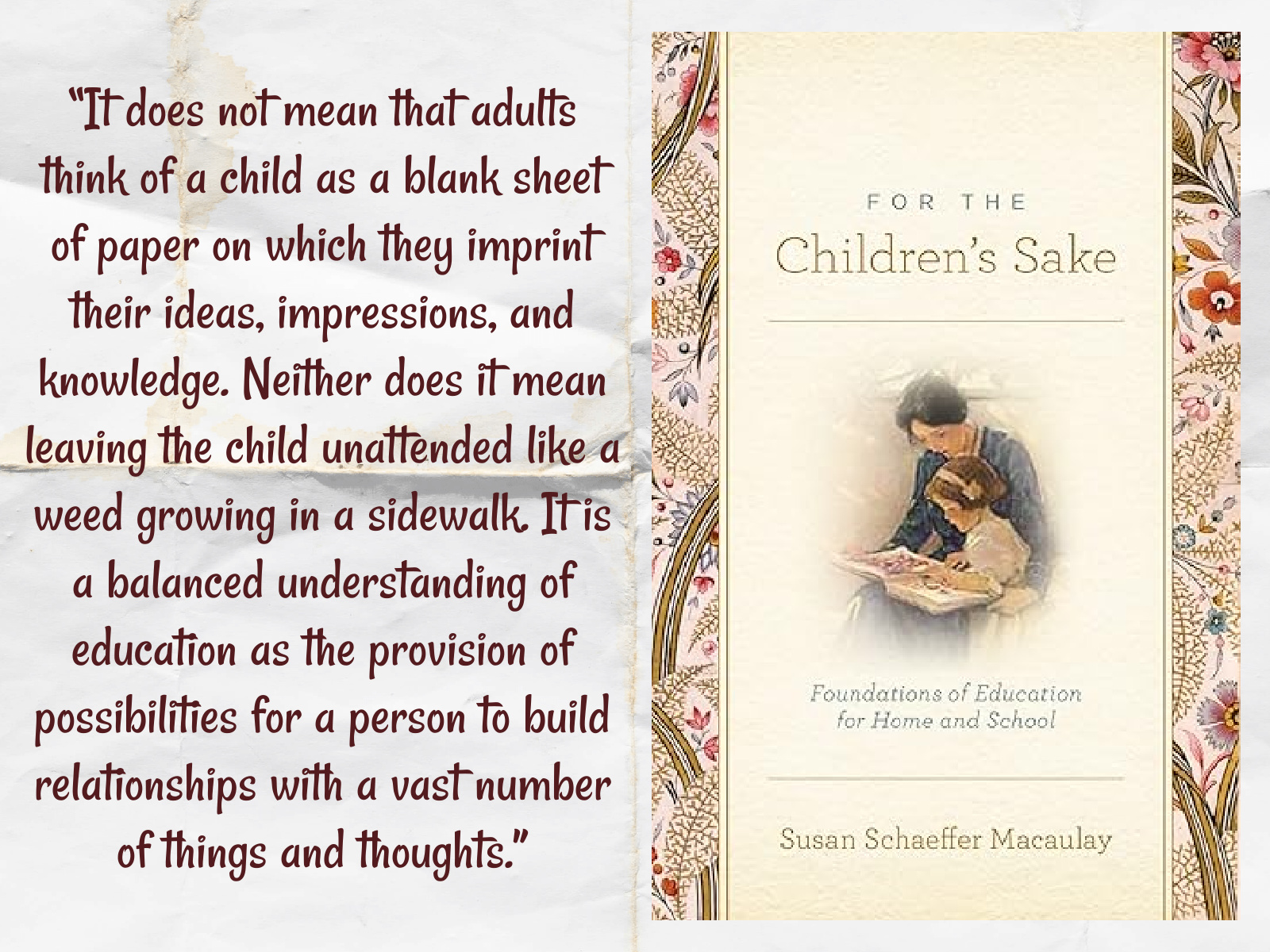
God of the Garden: Thoughts on Creation, Culture, and the Kingdom, by Andrew Peterson—In my experience, Christians don’t spend a lot of time talking about nature. Perhaps it’s a misguided attempt to avoid worshipping creation rather than Creator? But Scripture is filled with references to nature, and it is clear that we ourselves are closely tied to the earth—we are all from from dust, just like the trees.
In God of the Garden, author/musician/artist Andrew Peterson tells his own story through the lens of trees and nature and other aspects of God’s creation. This is a story of grief and redemption, hope and renewal, suffering and growth; it is one man’s (courageously honest) story, but it is also a story that God is telling through the world and through each of us. It is a celebration of community and of footpaths and of God’s goodness and our own invitation to join God as co-creators within this beautiful world.
I don’t think I’ve ever read a memoir quite like this one. The prose is gorgeous, as are the themes and Peterson’s creative storytelling that weaves imagery and big ideas into the simplest of anecdotes. I listened to the audiobook and it’s definitely the way to go: Peterson has a wonderful reading voice, and he includes recordings of some of his songs along with the stories that accompany them. I will definitely be thinking differently about my own garden and neighborhood trees after reading this!
My Rating: 4.5 Stars (Rounded to 4 Stars on Goodreads) // Book Format: Audiobook
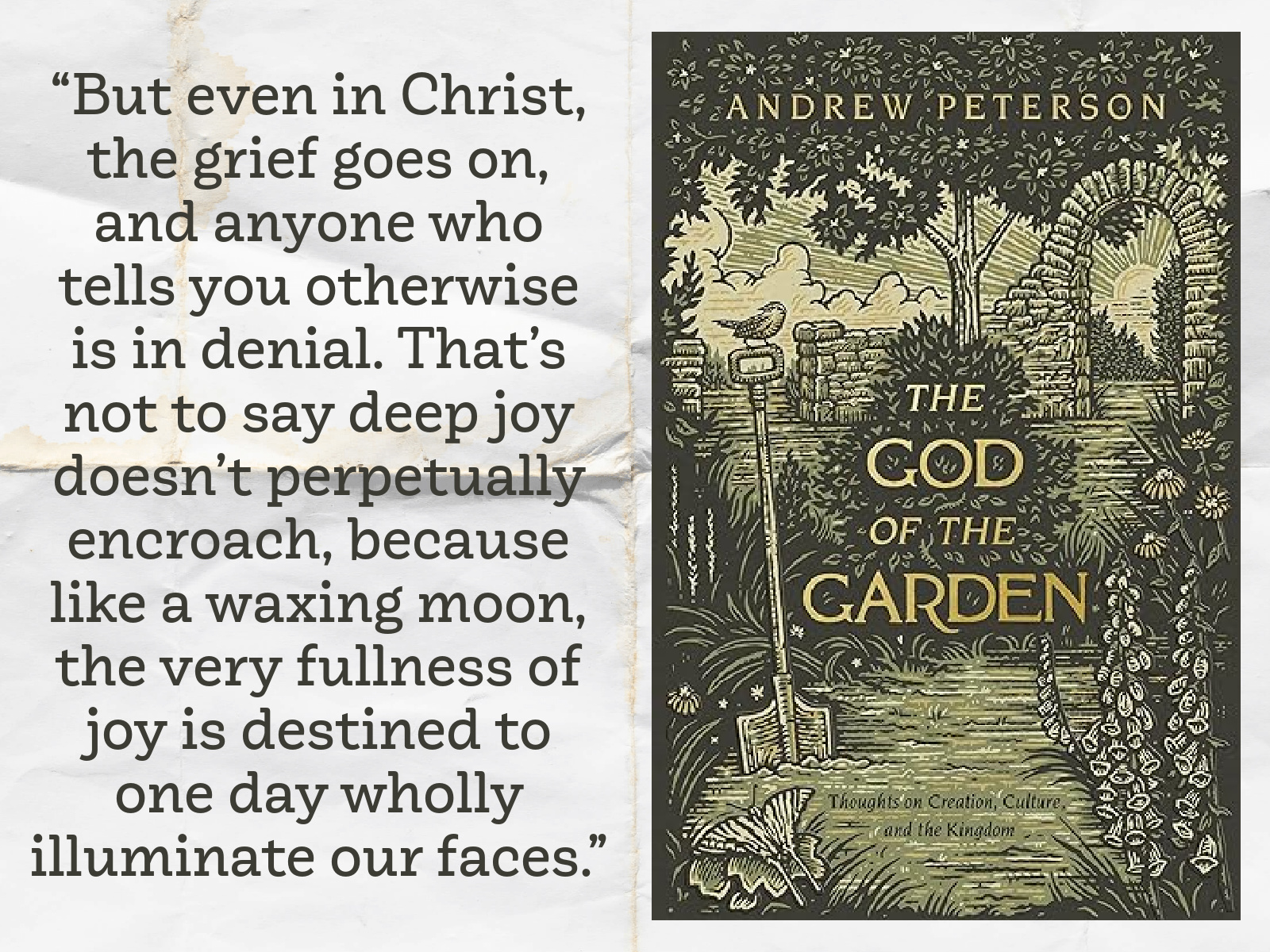
Reading Between the Lines: A Christian Guide to Literature, by Gene Edward Veith, Jr.—I think it’s pretty obvious by now that I love books, but sometimes I feel like a fraud when it comes to reading and studying literature. I don’t have an English degree and I haven’t spent much time studying the classics. But I’m always looking to learn more, and thankfully there are books like this one that provide all the education without the hefty college tuition.
In this book that blends literature, history, and theology, Christian literature professor Gene Edward Veith hopes to “promote critical reading, the habit of reading with discernment and an awareness of later contexts and deeper implications.” Veith begins with the premise that reading is a precious gift of God, and his stated purpose is to encourage people to utilize this gift to its fullest by helping us to read closely, to understand what we read, and to appreciate and enjoy good literature. Though originally published in 1990, it felt shockingly timely in its invitation for distracted Christians to return to the time-honored study of good books. (That said, some parts are quite dated, such as the bemoaning of contemporary obsession with TV [which feels almost quint now], and discussion of running around to brick-and-mortar bookstore searching for books.)
In the book’s opening chapter, Veith explains why reading has always been important to Christians, who are to be people of the Word. Veith goes on to explore the good and bad things that books can promote, then offers detailed explanation of various forms (nonfiction, fiction, poetry) and genres (tragedy, comedy, realism, fantasy). From here, we enter into a tour through literary history with an examination of the literary landscape during various periods—beginning with Medieval literature and leading up to the Postmodern era, and showing how Christians have remained relevant within each age. The book ends with a study of the relationship between authors, publishers, and readers, particularly how Christians can have an impact on the literary world.
This book covers a lot of ground and was a little much for me to take in all at once, especially on audio. But the content is golden, offering a comprehensive look at various aspects of literary history and analysis and providing support for understanding all of it through a Biblical lens. My biggest revelations came from the section on the various genres: I learned SO MUCH about tragedy, comedy, realism, and fantasy, and how each of these relate to our faith. The whole book (but this section in particular) has given me a greater appreciation for the intricate interplay between faith and literary form. I loved seeing how faith plays into books by secular writers, but I was especially intrigued by the highlighting of Christian authors within each genre and time frame and enjoyed seeing how Christians throughout history have allowed their faith and values to inform their work.
This would be worth a reread in print. I can see our family using this as part of our homeschool curriculum when we get to high school. And it was a great pairing with The Redeemed Reader, the book on children’s literature that introduced me to this title!
My Rating: 4 Stars // Book Format: Audiobook
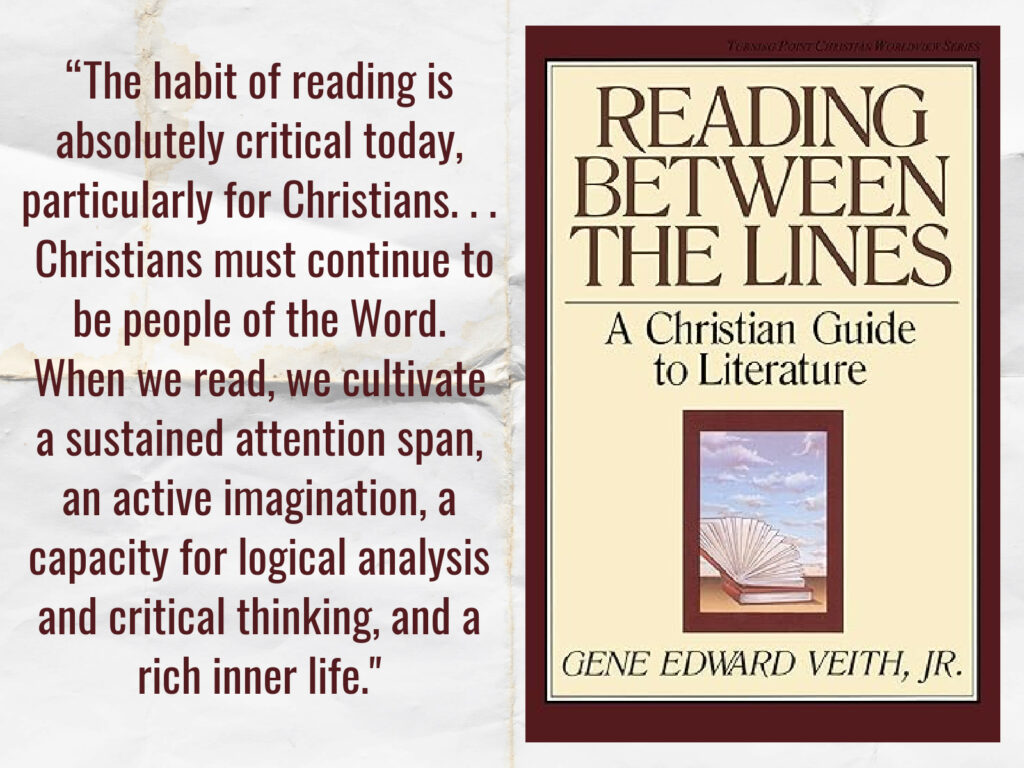
Have you read any of these titles? What did you think? What did YOU read this month? Any books to recommend?
I did get to read The Road to Tender Hearts and I loved it! It put a BIG SMILE on my face….
That makes me so happy to hear!